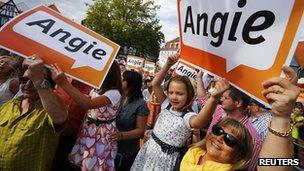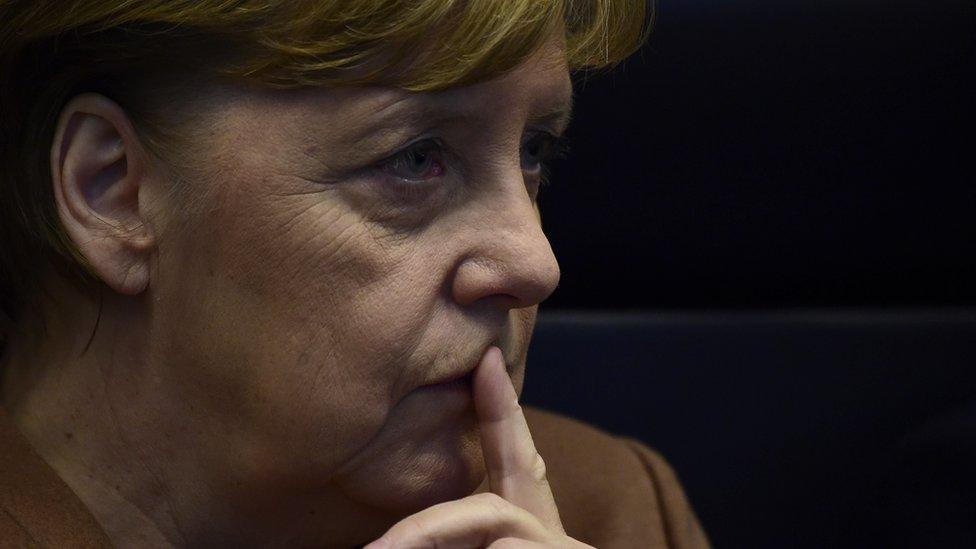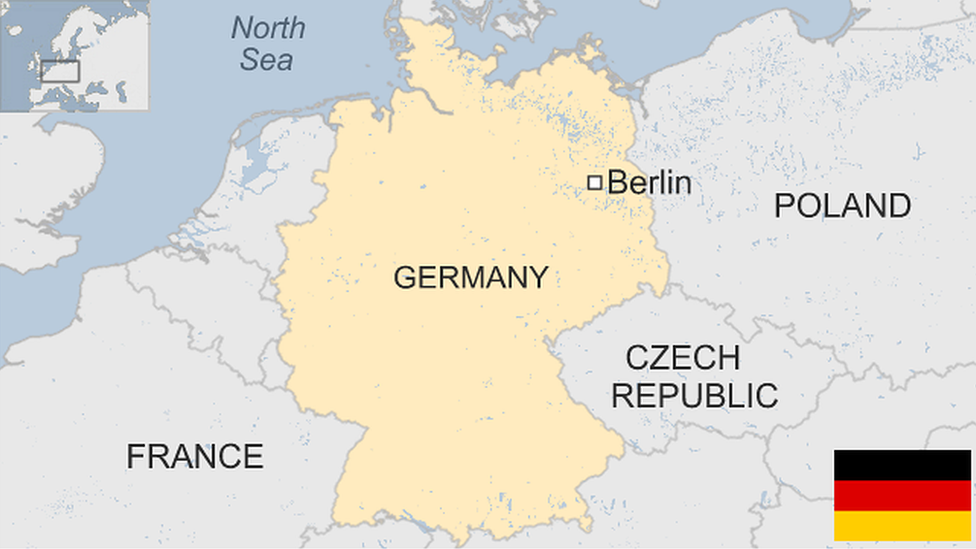Merkel launches German election campaign
- Published
Emily Thomas reports
The German Chancellor, Angela Merkel, has launched her re-election campaign by implying she is a safe pair of hands steering the economy.
Mrs Merkel addressed about 1,000 people in the picturesque medieval town of Seligenstadt, near Frankfurt.
News that the German economy grew by 0.7% in the second quarter boosted her campaign for a third term in power.
Her conservative Christian Democrats (CDU) and their Bavarian allies have a big lead in opinion polls.
The election will be held on 22 September, and Mrs Merkel's campaign tour will take her to nearly 60 events before then.
A survey by the Forsa institute puts the CDU-CSU conservative group on 40%, the centre-left Social Democrats (SPD) second with 23% and the Greens - the SPD's campaign allies - on 13%.
If she maintains such a strong lead Mrs Merkel should be able to govern again in coalition with the liberal Free Democrats (FDP), rather than seek a "grand coalition" with the SPD.
But there is some doubt whether the FDP will pass the 5% threshold necessary to get seats in the Bundestag - the lower house of parliament.
Message of prudence
Many in the crowd in the central German market town held "Angie" placards.
But there was also some heckling from SPD youth activists, who accused the CDU of allowing intrusive US secret surveillance. "Stop watching us" and "Freedom not Surveillance" their banners said.

Seligenstadt: Despite the eurozone crisis Mrs Merkel remains popular at home
Mrs Merkel's campaign slogan is "Successful Together". She attacked SPD-Green plans to increase taxes for higher earners, saying "when someone is successful the first thing they ask is 'how much can we get from them?'"
"We want to help you fulfil your dreams," she said.
She also mocked the Greens' proposal to make public cafeterias have one meat-free day every week.
"What is more important for you and your life - to have someone tell you that on Thursdays you shouldn't eat meat, or the fact that I as chancellor have ensured that we no longer have five million unemployed, but just three million?" she said.
"We have seen in Europe what happens when debts are too high. Growth on borrowed money - that's impossible," she said, underlining the fiscal discipline that has fuelled anger towards her in much of southern Europe.
- Published3 June 2019

- Published4 September 2023

- Published25 June 2013